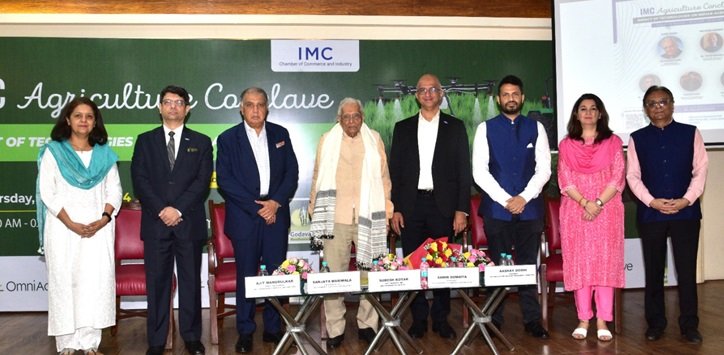Research and Technology are investments for future of Agriculture sector: IMC Agriculture Conclave
The Conclave aimed to create a forum for discussing the role of technology and research in promoting efficiency, productivity, and sustainability in the agricultural industry.
The IMC Chamber of Commerce and Industry’s (IMC) Agriculture Committee organized the ‘IMC Agriculture Conclave – Impact of Technologies on Indian Agriculture sector on Thursday, May 16, 2024 at IMC headquarters in Mumbai. The Conclave aimed to create a forum for discussing the role of technology and research in promoting efficiency, productivity, and sustainability in the agricultural industry. The distinguished panellists engaged in remarkable panel discussions encompassing trending subjects like the role of Research and Development in Indian agriculture, the influence of resource management, the role of new technologies, digital implementation, and the sector’s transition to new-age methods.
The inaugural session was addressed by Suresh Kotak, Past President, IMC and Chairman, Kotak & Co. Kotak highlighted that technology transition and research are two key aspects for the evolution of the agriculture sector it supports a revenue generation model. He further added that agriculture has a multiplier effect towards the GDP contribution of the country and new-age technology adaptation transpires the sectoral progress. The adaptation of Farmer Producer Organisations (FPO) has enabled them to access into global markets and exhibit the region’s various agricultural products.
Samir Somaiya, President, IMC Chamber of Commerce and Industry said, “Indian Agriculture has been, and continues to be the cornerstone of the Indian economy. It is one of the fastest growing sectors of the nation with the rapidly changing scenario of modern technologies. Technology and innovation are two key drivers of progress in the agricultural sector and are a critical support for guaranteeing food security, promoting sustainable practices, and generating economic opportunities. Governments, corporate sector entities, and other stakeholders should invest in initiatives that promote Agripreneurship and the adoption of new technology and practices throughout the agricultural value chain.”
The Conclave aimed to create a forum














